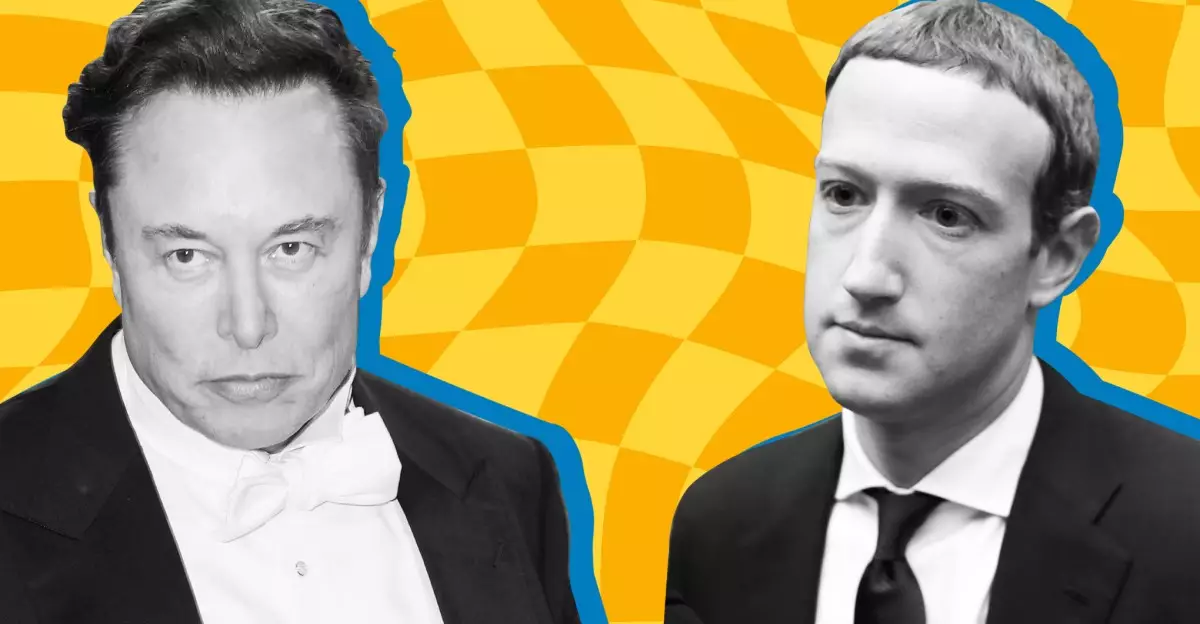In a bizarre twist of technological advancement, residents in California have recently found themselves navigating sidewalks not just with typical pedestrian alerts, but also with the AI-generated voices of prominent tech moguls, Elon Musk and Mark Zuckerberg. This twist has stirred quite the stir, signaling a new era of how technology, particularly artificial intelligence, can seep into the very fabric of everyday life. As amusing or alarming as it may seem, this incident reflects an urgent need for discourse surrounding the ethical boundaries of AI usage in public spheres.
This week, crosswalk signals in cities such as Palo Alto, Redwood City, and Menlo Park have reportedly been compromised, playing back these doctored voices that mock the very people who have played crucial roles in shaping the current digital landscape. The apparent hacking incident follows an unusual trajectory from harmless prank to a sharp reminder about security vulnerabilities inherent in seemingly innocuous technologies. While descriptions of Musk pleading for friendship and Zuckerberg bragging about undermining democracy have captured imaginations and laughs, they also unearth the unsettling potential of AI manipulation.
Humor or Harm? Examining the Intended Message
Although at first glance the voices of Musk and Zuckerberg might elicit laughter, the implications of such a hack are rather profound. The simulated monologues—Musk’s invitation for friendship, intertwined with absurd takes on cancer and loneliness, and Zuckerberg’s admissions of societal harm—punctuate a deeper narrative. The humor derived from these impersonations veils an underlying critique of the very infrastructures built by these titans.
For instance, in a world where Musk’s tweet can send stocks soaring or crashing, the juxtaposition of his digital persona yearning for friendship within a safety-oriented device might suggest a disconnect between public perception and personal realities. Zuckerberg’s dialogues, featuring brazen admissions of corporate malfeasance, both echo public sentiments about the tech billionaire’s role in broader societal issues and introduce an unsettling commentary on the pervasive reach of AI in regulating our lives. Opening our ears to these voices in such a mundane context forces us to reconsider how often we accept tech narratives at face value.
Ethics and Accountability: The Hacking Dilemma
As city officials scramble to deactivate the compromised crosswalk systems, one cannot help but reflect on the ethical dimensions of this incident. The mere possibility that voices of influential figures can infiltrate a crucial public safety mechanism raises questions of accountability and the fundamental integrity of AI applications. With the capabilities of machine learning advancing rapidly, what measures are in place to protect citizens from such parody that could easily escalate into more harmful implications?
Beyond the humor, the hijacking of these crosswalk buttons serves as a case study in the need for stringent safeguards to prevent unauthorized tampering with public systems. The sense of security that comes from properly functioning traffic signals is integral to public trust, and diminishing that trust for the sake of a laugh underscores a larger societal issue: the need to juxtapose innovation with responsible oversight.
The Role of AI in Shaping Public Discourse
While the incident has sparked plenty of discussion online, the utility of AI in shaping public dialogue should be carefully monitored. Generative AI, capable of meticulously imitating voices and personas, holds the power to either enrich or manipulate conversations. The myriad applications, idealistic in nature, can have unintended consequences—be it in misinformation, identity theft, or, in this case, trivializing an entire community’s trust in tech.
It is compelling to witness how AI can be purposefully deployed to mimic or spoof real people, yet this innovation also begs a larger inquiry: At what point might such spontaneity risk becoming toxic to our digital and physical environments? As laughter ensues from copied voices, it becomes imperative to delineate boundaries between parody and perniciousness, humor and hazard.
In the aftermath of this week’s bizarre phenomenon, we are presented with more than a fleeting moment of amusement; we are shown a glaring opportunity for deep introspection into our technological future.
In the intersecting realities of humor, hazard, and public safety, the voices of Musk and Zuckerberg now stand as both comedic relief and stark warnings. As cities work to restore order and integrity in their traffic systems, the temporality of lightheartedness contrasts sharply with the pressing need for ethical reflection on the role of AI in our daily realities.


Leave a Reply